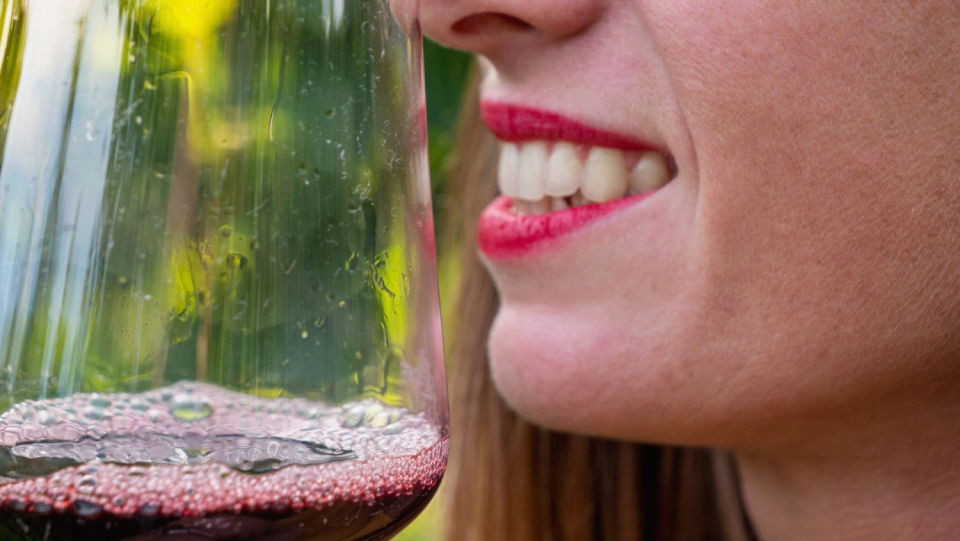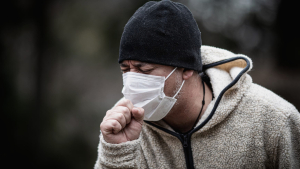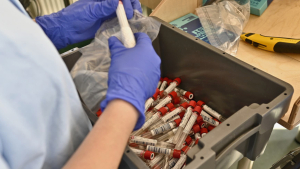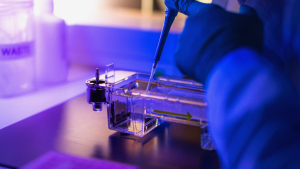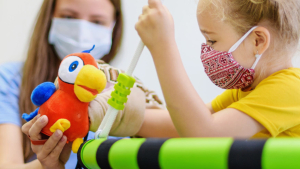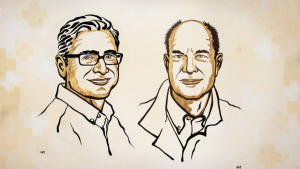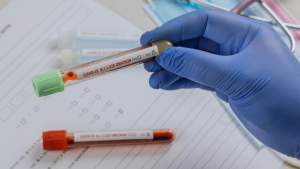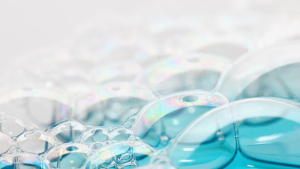Not only sugar damages the teeth. Acidic foods and drinks also attack tooth enamel, explains dentist Adrian Lussi from the University of Bern. The reason is that acid dissolves calcium from the teeth and thus attacks the surface. But this does not apply to all acidic foods. If you follow some simple principles, you can prevent damage to your teeth.
Which is worse for the teeth: sweet pastries or mulled wine?
Adrian Lussi: Depending on the recipe, mulled wine contains almost 20 percent sugar - and you sip the drink for a long time.
Due to the long contact time, bacteria multiply that reduce sugar.
This creates acid that causes tooth decay.
Therefore, the temporary snack of sweet pastries is less harmful to the teeth.
But that also means: who constantly eats cookies during the Christmas season, breeds caries?
We dentists would welcome it if it is eaten less often. It is particularly harmful to the teeth to consume sweets or acids all day. Every time sugar comes into the oral cavity-when I have plaque on my teeth-the pH value goes down to the critical value of about 5.5. This can create caries. If I do this ten times a day, I have greater damage than if I only do it three times a day. Most meals contain sugar or carbohydrates, which are already partially broken down into sugar in the mouth. So eating all day is not healthy for the teeth.
To get back to the mulled wine: the acid of the wine does not harm your teeth?
We investigated the effect of white and red wine on teeth. Both cause little erosion. Sparkling wine or gin and tonic are much more aggressive in this regard.
What are erosions?
In the case of caries metabolism, bacteria sugar, and acid that causes tooth decay is created as a degradation product. Erosion, on the other hand, damages teeth directly, without bacteria. In Germany there is a good investigation, the German mouth and health examination. In twelve -year -olds, only three percent had direct damage from acid. The 35-year-olds were almost 30 percent and even more for the older ones. Many people are not aware of which foods are directly damaged in this way.
Which ones?
Among other things, sports drinks, cola, fanta, even energy drinks – they are acidic and attack the teeth directly. Especially if you sip on it for hours, you literally dissolve the tooth enamel.
Does that mean, even light drinks without sugar are harmful to the teeth?
Yes, because they are so angry. In my working group, we took human teeth and first placed them in saliva so that they get the typical protective layer of saliva proteins. Then we looked at the extent to which food and drinks soften these teeth. At the forefront were the sour drinks. Although yogurt, for example, is also acidic – it does not do anything to the teeth because it contains a lot of calcium. Orange juice is also acidic, but if it is enriched with calcium, it does not harm your teeth either. The tooth has no reason to give up the valuable calcium if there is enough of it in its environment. Not all foods that are acidic damage the teeth.
Series: Mouth-friendly
Whether talking, eating, smiling or kissing: our mouth is almost non -stop. How important it is that he stays healthy only notices when the first ailments are noticeable such as caries, gum infections or nasty. Mund and dental care can have extensive consequences for the entire body- even with diseases such as Alzheimer's, heart problems and Covid-19, it is now associated. In our series "healthy in the mouth" you can find out what an optimal oral hygiene looks like, what contribution the oral microbiome makes and what makes the oral mucosa so special:
For example?
Beer is angry, it has a pH of four-but it does not erode the teeth. The same applies to honey. This is probably due to the calcium and protein contained. The idea is that the proteins "coat" the teeth and occupy the places where they can be attacked by acid.
Do you also damage your teeth if you eat something acidic, such as fruit, and then brush your teeth afterwards?
When you chew an apple, the saliva and neutralized and remineralized your teeth. It always means after eating something acidic, you should wait half an hour before you brush your teeth. But that's not correct. You would have to wait weeks to months for your teeth to be so hard again that they could resist brushing your teeth. When I think of a breakfast - for example orange juice and a bread with jam: I take acid and sugar. But the main problem is tooth decay. And that's why you should brush your teeth after eating.
So don't wait half an hour?
There are almost two diseases in the teeth: caries and erosion. It takes weeks to months for damage to the enamel caused by erosion to be repaired again. I can't wait that long to brush my teeth, because in the meantime I get tooth decay.
Then maybe half an hour break is a good compromise?
No, you etch as much away as if you didn't wait. Apples and oranges are healthy. A certain aging process is quite normal: the hands no longer look like 20 at 50. And that's the same with the teeth. We looked at more than 3000 Europeans for dental ornate and asked when these people brush their teeth in their daily routine. If the half-hour rule would make sense, then the people who are waiting for half an hour before brushing your teeth would have to have less erosions. But they didn't have, but exactly the same. Then my colleagues and I simulated this in the laboratory with human saliva and we had the same results. Even when we looked at the literature, we saw: 30 years ago, it was all known. And was forgotten. You can also clean before breakfast - it makes no difference for caries and erosion.
But then the bacteria have free rein?
Caries does not arise immediately. If I remove the biofilm correctly, the bacteria that turn sugar into acid will be gone. The same goes before eating. In our latitudes, almost all people clean after a meal, but not in other comparable countries. And they also no longer have caries.
But if I now cut my fruit into the muesli, then the milk with its calcium contains ensures that the erosions don't get so bad?
Yes. If you add cream, yogurt or milk to a fruit salad, then you no longer have a problem with erosion.
Does chewing gum help against tooth erosion after eating?
Sugar -free chewing gum is always good. More saliva develops through chewing, and it neutralizes the acid. Studies have even shown that chewing gum helps against damage caused by acid belching after eating. So much saliva is then formed that the acid can no longer get up. But again - even due to the chewing gum, no erosion damage is repaired. That would take months.
How does our diet affect dental health?
Many people consume sugar all the time. As a result, the bacterial flora changes, it moves away from equilibrium. Microorganisms that love sugar and acid then dominate in the oral cavity, and these destroy the teeth. But it also paves the way for other bacteria that are bad for oral health, and thus promotes gingivitis and periodontitis. Today we know that it favors cardiovascular diseases and premature births. A healthy diet is therefore important for the organism.
Have you ever had tooth decay?
Yes. I still have some carious positions today, because I was a chemist at first and in the 1970s little was known about the right prophylaxis. Caries begins not as a hole, but as a white spot. At this stage, you do not have to drill the tooth. I am not bothered by my white spots, they have remained the same for decades.
How did you manage to do that?
With fluoride-containing toothpaste, I cleaned my teeth three times a day and remineralized them- this makes the defects a little smaller. By cleaning, I removed the plaque, i.e. the biofilm, in which the acid producing bacteria feel comfortable, and I looked at a low -sugar diet.
And the interstices?
Since there is about 30 percent of the tooth surfaces between the teeth, I use dental floss and/or interdental brushes. You need more skill to use dental floss, but it is particularly practical for very narrow interdental spaces, for example to clean between the incisors. In the molars, the interdental brushes clean better.
Do you need professional teeth cleaning?
A long time ago there was a Swedish study that showed that caries and gingivitis can be prevented with professional tooth cleaning, which takes place every three to six months. Today there are devices where the teeth are cleaned with a fine powder - that doesn't hurt as before. Because today you use the amino acid glycin or erythritol - a sugar substitute that even protects against caries. The procedure is minimally invasive, you don't lose a tooth substance and you are no longer sprayed with your powder from head to toe because it dissolves in the mouth.
How often should you go for teeth cleaning?
How often a patient should go to dental cleaning depends on his individual dental care and nutrition. Either every three, six or maybe every twelve months. As a result, it is possible to prevent both damage to the tooth and to the periodontium and, if such are already present, to keep their extent constant. Prophylaxis is the be-all and end-all. One should do even more.
But if you clean too often, is it not good either?
You should brush your teeth for two minutes at least twice a day, use a toothbrush that is not too hard, and a toothpaste containing fluoride that is not too abrasive. And just go to the mentioned professional teeth cleaning.







